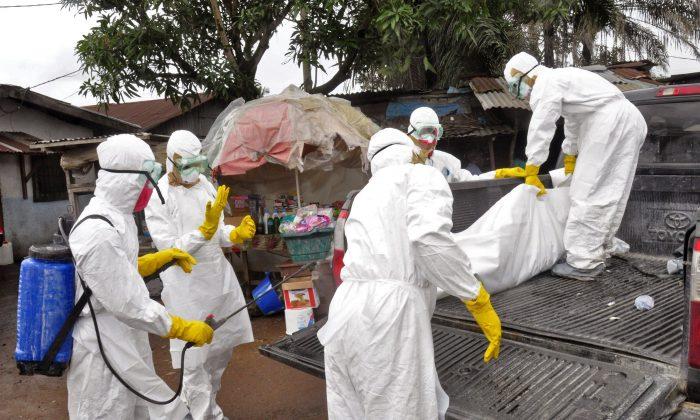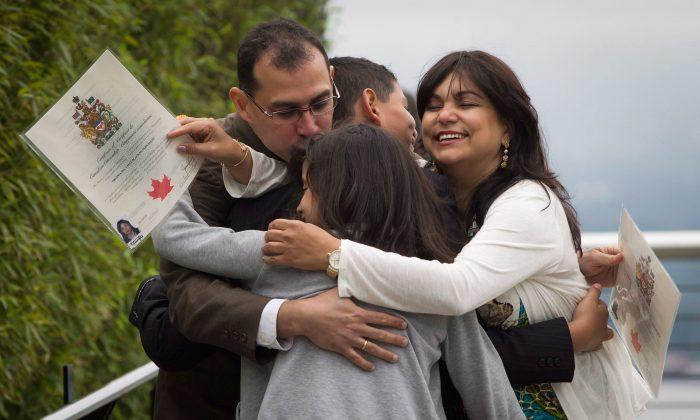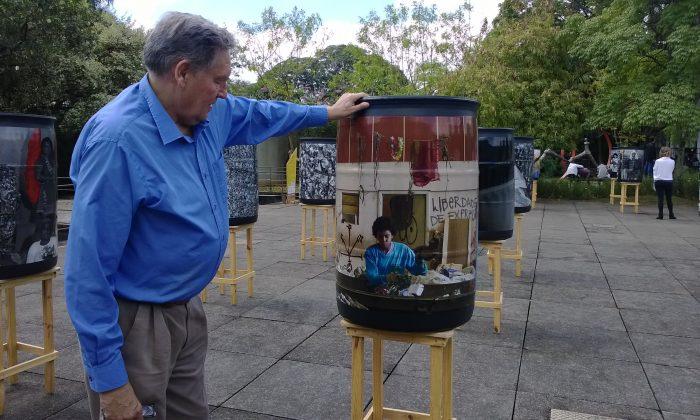Ottawa has announced it is giving personal protective equipment worth $2.5 million to the World Health Organization to help in the global response to the Ebola outbreak in West Africa.
The donation comes after an appeal to member states by WHO, which reports a shortage of personal protective wear and equipment needed by front-line workers in the affected countries.
Health Minister Rona Ambrose said in a news release that the supply of respirator masks, gloves, face shields, and gowns is “another way our government is providing valuable support to those working in West Africa.”
The equipment is designed to prevent the Ebola virus from spreading and reduce the risk of contact with infectious bodily fluids, especially as response workers from Canada and WHO work in the affected regions to detect and manage the outbreak.
Earlier this week, the United States said it is dispatching up to 3,000 military personnel to Liberia—where transmission rates are increasing the fastest—as part of its efforts to combat the virus, which has killed more than 2,400 people in five countries and sickened an estimated 5,000.
The troops will create a regional command to support U.S. military activities and help with international relief efforts. The U.S. is also sending 100 Centers of Disease Control experts to the affected countries.
“This is, if not the largest, it’s among the largest deployments of CDC personnel ever,” White House Press Secretary Josh Earnest said during a press briefing on Monday, Sept. 15.
WHO warned Tuesday that the number of Ebola cases in West Africa could start doubling every three weeks, and it could end up costing nearly $1 billion to contain the crisis.
So far, Canada has donated 800-1,000 doses of experimental vaccine and contributed $5,195,000 in humanitarian aid, security, and public health support to control the outbreak. As part of Canada’s efforts, Health Canada has a mobile lab in Sierra Leone staffed by public health workers.
“We will continue to explore ways for Canada to make a meaningful contribution to the global response,” said Ambrose. “I want to reassure Canadians that there are no confirmed cases of Ebola in Canada and the risk to Canadians remains very low.”
Meanwhile, UNICEF Canada said Tuesday that it needs $200 million to respond to the outbreak. The appeal is part of the aid agency’s efforts to raise $987.8 million over six months, which it says governments and humanitarian agencies require to fight the virus.
As a children’s agency working in all of the affected countries, UNICEF says 8.5 million children and youth risk infection in Guinea, Sierra Leone, and Liberia. Some 2.5 million of them are under the age of 5.
UNICEF is hastening the movement of protective equipment, hygiene items, and medicine with support from the U.S. Agency for International Development, World Bank, and Japan to airlift 544 metric tonnes of the supplies to Guinea, Liberia, and Sierra Leone. The agency is also installing water and sanitation facilities in the affected countries’ Ebola treatment centres.
To support Sierra Leone’s government in its public-awareness efforts, UNICEF is training teachers and volunteers to educate families on how to prevent the disease. Its goal is to spread accurate information on Ebola and provide emotional support and basic services to women and children.
Susan L. Blanchard is a freelance reporter based in Calgary.



Friends Read Free